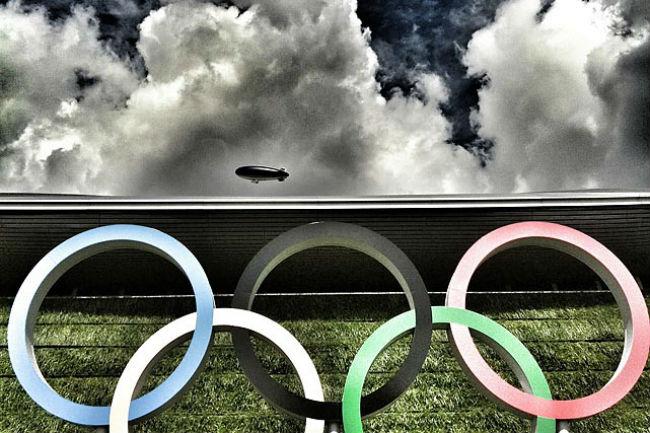
Earlier this week, reports surfaced that the 2014 Winter Olympics in Sochi, Russia, would prohibit journalists from using mobile phones to capture and share media, including via social networks like Instagram, Twitter, and Facebook.
These reports were rebuffed by Olympic Committee spokesman Mark Adams, who insisted that media were welcome to use social media platforms in their reporting, writing an email to USA Today, ““Please take as many photos as you like! Sharing pix on social media positively is encouraged.”
But that doesn’t mean journalists don’t have restrictions on how they can use new media platforms. Adams made a point to encourage journalists to share images on social media, but he also explained that video is banned. Journalists can put filters over athletic accomplishments to their hearts’ content on Instagram, but they aren’t supposed to upload video clips. This means Vine will be more or less banned. (Athletes can give us a peek into the action via Vine, of course, but don’t expect to see those six second loops from the reporters’ side).
The initial reports about a potential social media ban insinuated that Sochi’s Russian hosts were behind the policy, but as it turns out, this rule against video has nothing to do with the vagaries of Russian opinion on social media and everything to do with the fight between new and old media. Here’s the rule laid out in the social media guidelines for the 2012 Summer Olympics in London: “Participants and other accredited persons cannot post any video and/or audio of the events, competitions or any other activities which occur at Olympic Venues. Such video and/or audio must only be for personal use and must not be uploaded and/or shared to a posting, blog or tweet on any social media platforms, or to a website.”
So why are photos OK but videos aren’t? It doesn’t have to do with Russia in particular — it’s likely the IOC is being careful about what it allows to be published when. There are two reasons for this: first, to quell spoilers. There was controversy in 2012 about journalists releasing “spoilers” by posting to social media by posting real-time updates. But that concern is likely secondary to a larger problem: the IOC doesn’t want to anger its Olympic broadcasting partners, like NBC. The broadcasters pay large sums for the right to air exclusive content in their country, and a plethora of video clips available for free on the Internet may make these companies concerned that people will be less inclined to watch the traditional way if they’re getting all they need on social media. If viewers see an gold medal ceremony summed up in a 15 second Instagram clip that went live on Twitter in real time, maybe they won’t tune into to see it on TV later – and that is bad news for broadcasters and their advertisers.
This rejection of video-based social media is short-sighted. The way the Olympics are currently broadcast, particularly in the U.S., is certainly not perfect — social media video can enhance the current system, and may even compel it to change for the better. Who doesn’t want real-time, behind-the-scenes content? For fans of the Olympics, increased social media usage — including video — will make the viewership experience better. At least, that’s the argument for new media; old media proponents clearly take issue with it.
The IOC already partnered with YouTube to stream content for the London Olympics to countries where the broadcasting rights hadn’t been sold, highlighting how the IOC can incorporate the social web into the Olympics experience to reach more people. Moreover, while the IOC may enforce the video policy and suspend journalists who post Vines or Instagram video clips, it will be impossible to stop people in the audience from doing so, and trawling each accredited journalists’ accounts for violations is a poor use of resources.
Of course, even if social video will enhance the Olympics experience for fans, it doesn’t mean the IOC will lighten up as long as broadcasters’ money commands their attention.


